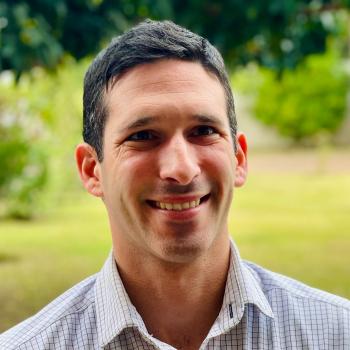
Noam Angrist is the Academic Director of the What Works Hub for Global Education. His interests focus on bridging the gap between evidence on 'what works' to enable young people to thrive and translation into scaled intervention and policy. He is the co-founder of Youth Impact.
Noam has a B.S. in Mathematics and Economics from the Massachusetts Institute of Technology (MIT) and a PhD (DPhil) from the Blavatnik School of Government, University of Oxford.
He has consulted for the World Bank Chief Economist, FCDO's Chief Economist, and led key aspects of the development of the World Bank Human Capital Index education pillar. Noam further led the development of UNICEF's evidence menu for the Foundational Literacy and Numeracy Hub (FLN) hub in partnership with the Abdul Latif Jameel Poverty Action Lab (J-PAL). He also led the academic research underpinning the inaugural report of the Global Education Evidence Advisory Panel.
His research includes primary research on programme and policy effectiveness via randomised trials and natural experiments, building global databases and public goods, and synthesising evidence to inform policy.

Noam Angrist is the Academic Director of the What Works Hub for Global Education. His interests focus on bridging the gap between evidence on 'what works' to enable young people to thrive and translation into scaled intervention and policy. He is the co-founder of Youth Impact.
Noam has a B.S. in Mathematics and Economics from the Massachusetts Institute of Technology (MIT) and a PhD (DPhil) from the Blavatnik School of Government, University of Oxford.
He has consulted for the World Bank Chief Economist, FCDO's Chief Economist, and led key aspects of the development of the World Bank Human Capital Index education pillar. Noam further led the development of UNICEF's evidence menu for the Foundational Literacy and Numeracy Hub (FLN) hub in partnership with the Abdul Latif Jameel Poverty Action Lab (J-PAL). He also led the academic research underpinning the inaugural report of the Global Education Evidence Advisory Panel.
His research includes primary research on programme and policy effectiveness via randomised trials and natural experiments, building global databases and public goods, and synthesising evidence to inform policy.

